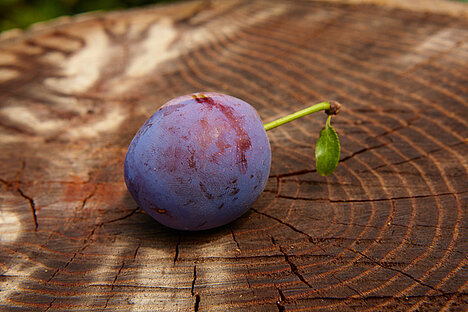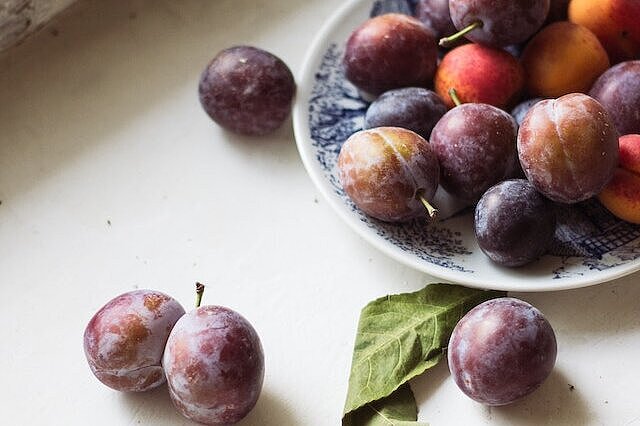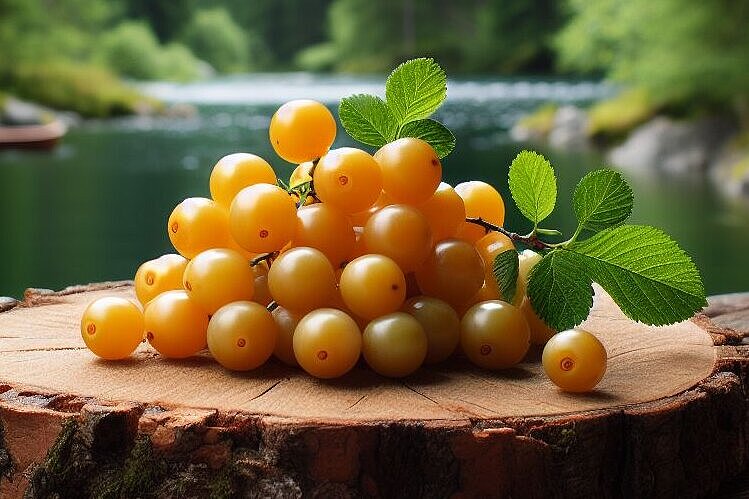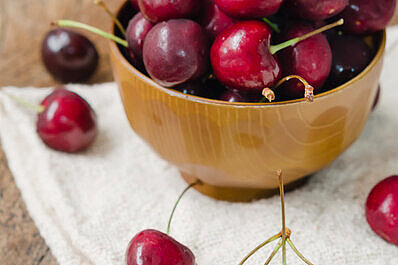Plum

The benefits of damsons for dogs
Plums can provide some health benefits to dogs when fed in moderation. For example, they can:
- Aid digestion as they are high in pectin, which stimulates intestinal transit.
- Strengthen the immune system, as they provide vitamin C and antioxidants that support the immune system.
- Take care of your teeth, as they reduce plaque and massage the gums through chewing.
The disadvantages of damsons for dogs
However, damsons are not suitable for all dogs and can also have some disadvantages if fed too often or too much. For example, they can:
- Cause diarrhea or abdominal pain if the dog is sensitive to fructose or has an intolerance.
- Cause poisoning if the dog eats the kernel, which contains hydrocyanic acid, which is very toxic to dogs.
- Promote obesity if the dog consumes too many calories that it does not burn off.
How to prepare plums properly for your dog
If you want to give your dog damsons, there are a few things you should keep in mind to give them a healthy and safe treat. Here are some tips:
- Choose ripe and fresh plums that have no signs of mold or rot.
- Wash the plums thoroughly to remove any pesticide residue.
- Remove the pit and cut the plum into small pieces that your dog can easily swallow.
- Only give your dog a small amount of plums as a treat or addition to their food. A rule of thumb is that fruit should not make up more than 10% of your dog's daily calorie intake.
- Monitor your dog after feeding plums and watch for any signs of discomfort or intoxication.
Plums can be a tasty and healthy treat for your dog if you prepare and dose them correctly. Try it out and find out if your dog likes plums!
Plums can offer dogs benefits such as aiding digestion, strengthening the immune system and dental care, but should be fed in moderation. Disadvantages can include diarrhea, risk of poisoning from seeds and obesity. When preparing plums, care should be taken to use ripe, fresh plums, wash them thoroughly and remove the seeds, and only give dogs a small amount as a reward or supplement to their food.
If you notice any signs of hypersensitivity or poisoning in your dog, you should see your vet immediately. We are not a substitute for a vet, but we try to be as accurate as possible. Every dog reacts differently and we recommend you get a second opinion or consult your vet if in doubt.
Stay healthy and take good care of your four-legged friend!😊
Similar to Plum
Plums are the fruit of the plum tree, which belongs to the rose family. There are many different varieties of plums, which differ in shape, color, taste and size. Most plums have an oval or round...
A mirabelle is a small, yellow or red plum that originally comes from Asia. It has a sweet and juicy taste and is rich in vitamins, minerals and fiber. Mirabelle plums are usually eaten fresh or...
Apricots are stone fruits that belong to the rose family. They have a yellow-orange color and a sweet aroma. The fruit grows on trees and is usually harvested in summer. Apricots can be eaten fresh...
A cherry is a stone fruit that belongs to the rose family. There are many different varieties of cherries, which differ in color, size, taste and sweetness. The best known are sweet cherries and...



